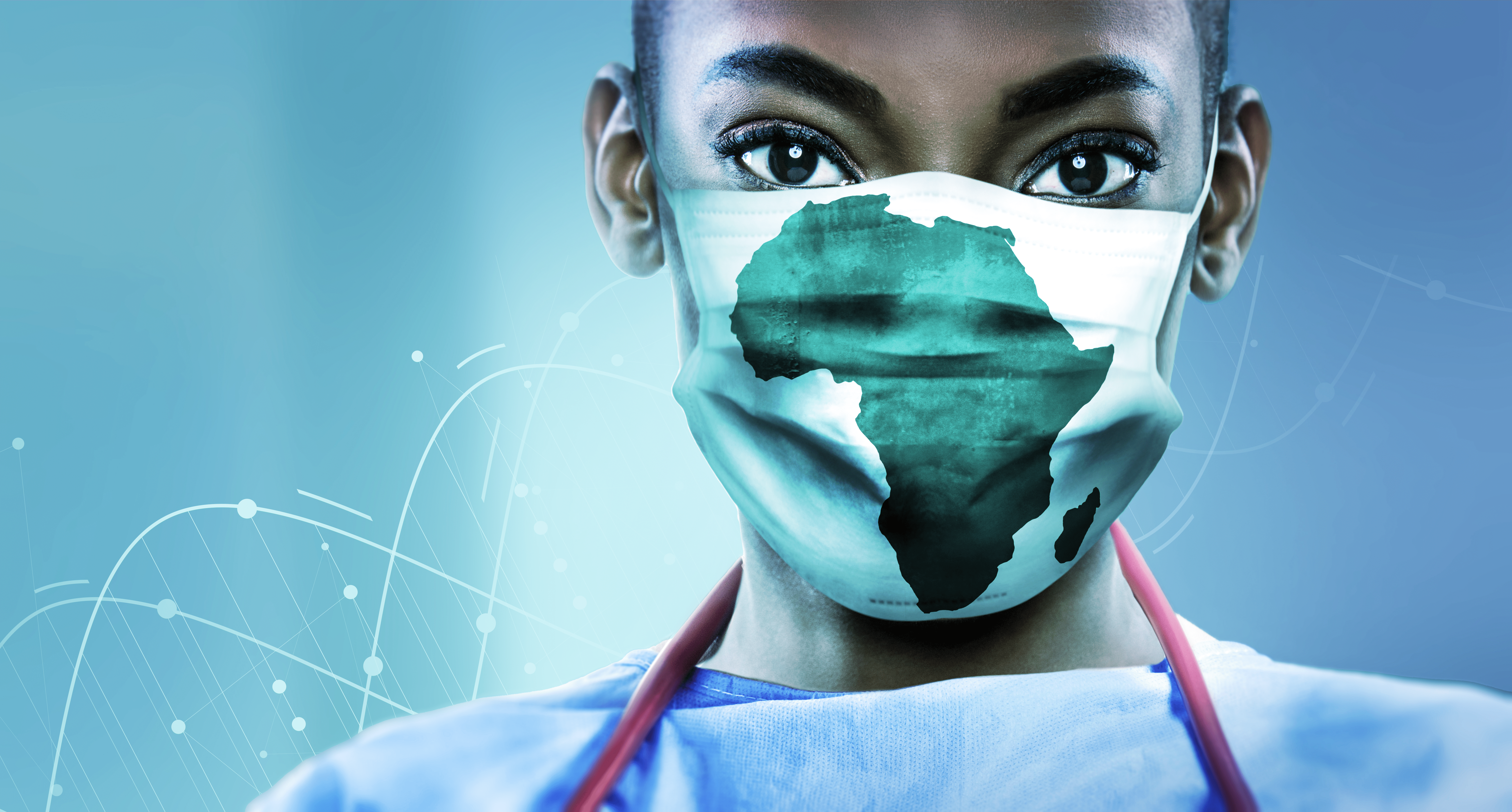Healthcare systems in Africa, closing the gap with technology
 Technology, essential to achieving better access and quality in Africa healthcare
Technology, essential to achieving better access and quality in Africa healthcareImagine getting a medical diagnosis online, your prescription is automatically ordered, then later you receive your medicine at home.
A purely digital healthcare system may still sound futuristic to some but this technology is already in development. Mobile technology especially is rapidly advancing healthcare around the world, but nowhere else is this impact seen as much as in Africa.
In remote and underdeveloped African regions, digital innovations could finally reduce the gap in healthcare inequality and create a sustainable healthcare system. These innovations will also be necessary to implement universal healthcare, which several global entities have pledged to achieve by 2030.
In this article, we discuss:
- The state of health systems in Africa
- Healthcare challenges in the region
- Examples of technology innovations changing Africa’s healthcare
The state of healthcare systems in Africa
According to the World Bank, sub-Saharan Africa (SSA) has among the worst healthcare in the world. It accounts for a quarter of the global disease burden, yet the region receives less than 1% of global health expenditure and only has 3% of the world’s health workers.
The World Economic Forum reports that almost half of African countries spend less than USD60 per capita per year on healthcare. The region’s healthcare expenditure averages around 5% of GDP compared to around 20% of GDP in the US.
Despite efforts to improve healthcare access in African countries, numerous challenges continue to hinder progress. In particular, some of these issues include:
- A shortage of workers and educated professionals, coupled with a lack of resources for training.
- Lack of medical access in rural areas.
- Poor access to information on vaccinations, preventative practices and other campaigns.
- Lack of communication and collaboration inside the healthcare sector.
- Corruption, such as selling drugs that should be free and offering bribes to allow fake drugs into the market.
- Counterfeit and sub-standard drugs are a major issue without adequate supply chain management.
- Changing medical requirements as the growing middle classes increase in noncommunicable diseases, like cancer and diabetes.
- Low internet access, including for mobile technologies. The majority of mobiles used in African countries are not smartphones. Although, there has been some progress in introducing lower-priced smartphones into the market.
Improving healthcare in Africa
Inadequate funding remains one of the biggest issues in improving healthcare in the region. Most payments come from out-of-pocket spending and international funding. However, even after years of considerable international aid, more than half of the region’s population still doesn’t have access to healthcare. In a 2021 report, many healthcare systems in Africa ranked below other developing countries, such as India and Jordan.
Besides funding, other areas that are considered vital in order to improve Africa’s healthcare include:
- Innovative digital technologies
- Improved knowledge, resources, and skills
- Collaboration between stakeholders.
These requirements are rapidly shaping both the public and private healthcare sectors in African countries, sometimes even exceeding the growth in developed countries. Even a decade ago, reports said that Ghana alone had some 3,400 medical apps, the second-most in the world after India.
In a panel discussion at Stanford, Dr. Abayomi Ajayi said: “African countries have to embrace technology to close the health care gap, and private-public partnership can help with that.”
For-profit private investors are now considered an important force in the SSA region. Most importantly, tech solutions can provide low-cost alternatives for out-of-pocket payments, without burdening the public system.
One area of success is digitizing healthcare systems (eHealth). Several countries in Africa have also pledged to raise healthcare expenditure to 15% of GDP. Today, with the help of digitalization and other innovations, some of the top healthcare systems in Africa include:
- South Africa
- Tunisia
- Morocco
- Algeria
- Rwanda
- Ghana
- Kenya
- Libya
- Tanzania
- Zambia
How technology is changing healthcare in Africa
Today, many innovative technologies are being developed by Africans for their own countries. Drawing from local experiences and knowledge, they offer the unique insight to create hyper-specialized solutions.
This story rings true for the founders of KimboCare, who utilized blockchain technology to facilitate paying directly for family medical treatments in Africa while living abroad. This project is being developed under the United Nations’ Sustainable Development goal of “health and well-being for all.”
Through their platform, anyone around the world can upload money that is tokenized into ‘health credits.’ These credits can be used by residents in African countries to get instant access to medical treatments. This minimizes the local challenges of poor banking services, rural communities, and fluctuating exchange rates.
Their platform also demonstrates numerous applications for corporate contributions and ESG investment. Because blockchain facilitates a high level of data aggregation, real-time insight into campaign spending, and automated analysis across the whole supply chain, stakeholders will increasingly be able to invest with improved transparency and security. This boosted accountability will also help companies pivot in the face of rapidly developing ESG regulations.
Across the continent, many other technological solutions are solving both simple and complex issues, from digitizing medical records to apps that can diagnose illnesses. Below we look at some of the most interesting developments.
1. Mobile technology for healthcare services
When healthcare technology can be operated via a mobile app or text message, it becomes a powerful tool in isolated areas.
According to the World Bank, Africa’s mobile phone market is now larger than the European Union or the United States. With some 650 million subscribers, mobile technologies are being embraced across the African continent with remarkable speed.
Mobile technology is being used in diverse ways, with some examples below.
- mTRACin Uganda– It takes patients hours to be seen in a clinic, after which there may not even be stock of the required medicine. mTRAC is a system that was introduced so healthcare workers could report illnesses and request medication by SMS. This saves lives by managing an efficient supply cycle, while also providing organizations and governments with in-depth data, a typical rarity in Africa. Governments can now use this data to improve drug redistribution and start other healthcare initiatives. mHealth by Novartis is a similar project being tested in Kenya.
- The SMS Printer for Life in Cameroon– Babies born with HIV have a higher life expectancy if they are diagnosed early. MTN’s extensive coverage in Cameroon enables same-day results to be sent via text to the clinic’s printer and the caregiver’s phone. This enables an infant to receive treatment as fast as possible.
- Babyl in Rwanda– this system enables remote consultations via a call center, plus digital prescriptions to be issued via a SMS-based system, which can be collected at participating pharmacies.
2. Training and education
A shortage of skilled health workers is one of the major challenges to improving healthcare in Africa. Additionally, a lack of general medical knowledge among the population means fewer people can identify symptoms and seek timely treatment.
Some education-based initiatives include:
- The RAFT system (Réseau en Afrique Francophone pour la Télémédecine) is a teleteaching and teleconsultation platform in a dozen countries, which was designed to boost knowledge sharing and collaboration, especially in rural areas.
- MTN’s nurse training pilot program in South Africa used multimedia training centers to help nurses access digital tools and information to boost their learning.
- MedAfricawas designed by a Kenyan startup to raise health awareness, including tools for self-diagnosis and lists of licensed practitioners to reduce medical fraud.
3. Drone-powered care delivery
Isolated communities have a significant impact on achieving healthcare access for all. Drones can offer an innovative solution to provide vital medical needs; from as simple as receiving medication to getting a blood transfusion in an emergency.
For example, two-thirds of most preventative deaths from childbirth and pregnancy take place in sub-Saharan Africa. Part of this reason is because that blood cannot be transferred to the patient fast enough, especially when there are poor road conditions and long distances.
Helicopters traditionally provided a solution to this issue, but drones are even more effective because they can handle many weather conditions and need less space to land than a helicopter. The applicability increases when these deliveries can be scheduled and accessed via mobile app.
So far, this has proven a success in the Zipline project, which has grown to deliver blood and medicine to more than 350 health facilities in Rwanda. They were also able to work with the Government of Ghana to distribute covid-19 vaccines to remote areas.
The South African National Blood Service (SANBS) also announced in 2019 their plans to create a program to deliver blood by drone.
4. Remote diagnosis and AI doctors
Smartphone connections are expected to reach nearly 700 million users by 2025, more than double the 302 million users estimated in 2018, according to GSMA. Additionally, they estimate half of the population will subscribe to mobile services by this time.
This can greatly fill a need for medical advice and diagnosis in remote areas and most importantly at affordable costs. Affordability entices more people to access medical services, even if they must pay out-of-pocket.
Some examples include:
- Hello Doctor in South Africa provides essential health information and access to talk to a doctor for 55 rands ($3) a month.
- In Nigeria, Omomiprovides doctor consultations for pregnant women and mothers for 200 nairas (55c).
- In Uganda, Matibabu is testing an app and device to diagnose malaria without a blood test. It uses light to detect a malaria-causing parasite through the skin, then the results are sent to an app. In Africa, a child under five dies of malaria every two minutes; most of these deaths are preventable.
- A Nigerian AI system called Ubenwa is programmed to analyze an infant’s cry to detect abnormalities associated with asphyxia. This affects around 1.2 million children a year.
- A biomedical smart vest in Uganda – Mama-Ope – can provide an early diagnosis of pneumonia. This telemedicine device also allows doctors to track and monitor a remote patient’s records using cloud storage.
- CareAi combines blockchain and AI technology to diagnose infectious diseases within seconds, including malaria, typhoid fever, and tuberculosis. While it was initially targeted for refugees in Europe, the applications could extend to developing regions such as Africa. In the future, AI systems could use medical records to recommend medicines with more precision and order the prescription at the closest pharmacy.
5. Smart lockers
Public clinics and hospitals are typically overwhelmed, especially in the sub-Saharan African region where healthcare facilities are scarce. Long wait lines become especially problematic when chronically ill patients must regularly collect prescriptions.
South African engineer Neo Hutiri experienced this when suffering from tuberculosis. He went on to develop a smart locker system – Pelebox – to automatically dispense medicine into the locker. Patients then receive an SMS for pick-up and use a unique code to open the locker.
6. Tracking data and medical records
Technology can significantly improve healthcare delivery and diagnosis if it can facilitate the collaboration and storage of medical information.
Healthcare services in African countries are particularly hindered by:
- Poor data collection
- Lack of medical record tracking
- Privacy issues
- Little communication between health departments
With challenges come opportunities. Many countries are investing in building their eHealth systems, with South Africa leading the way with startups like Pelebox or CareAI. CareAi uses smart contracts, like Distributed App, to help regulate privacy and access to a patient’s data across multiple services.
Blockchain also contributes significant value in this area, where issues such as security and privacy can be addressed. KimboCare, for example, uses blockchain technology to give permission to relatives abroad to monitor their family’s medical treatments back home, and even cover payments when funds are low.
This increased privacy and data collection will also be vital for ESG investments, especially considering recent changes in ESG regulations. Companies increasingly will be asked to provide detailed information, which is where blockchain shines. The increased transparency will also be pivotal to attracting more healthcare investments to the region.
Conclusion
Despite numerous advancements in technology, the healthcare systems in African countries continue to lag compared to the global standard. Diligently orchestrated action is urgently needed if African countries are to close the gap of healthcare inequality, especially as it relates to the United Nations' sustainable goals for universal healthcare access. Otherwise, the region will continue to be reliant on private investment and out-of-pocket spending.
This mission is shared by KimboCare, which strives to use technology to achieve the UN’s goal of “health and wellbeing for all”. KimboCare’s digital platform aims to facilitate quicker access to quality medical services, maintain electronic medical records, and enable secure payments from anywhere in the world directly to healthcare providers in African countries, and in many more areas soon.

